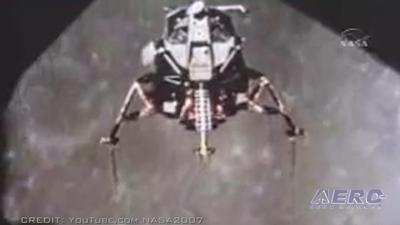A Life Well-Lived
NASA astronaut and U.S. Space Program luminary Thomas Kenneth “Ken” Mattingly passed away on 31 October 2023 at the age of 87.

A U.S. Naval Aviator, aeronautical engineer, test pilot, and U.S. Navy Rear Admiral, Mattingly was scheduled to crew the 1970 Apollo 13 mission. Three days prior to launch, however, he was erroneously deemed by NASA flight surgeons to have contracted German measles. Fearing he would manifest symptoms during the planned nine-day mission, Mattingly was replaced by Jack Swigert.
Undaunted, Mattingly later served as the Command Module Pilot on the Apollo 16 mission, during which he made 64 lunar orbits, thereby joining an august company of only 24 men who’ve flown to Earth’s moon. Moreover, Mattingly and John Young—the former’s Apollo 16 commander—are the only men to have flown aboard both lunar and Space Shuttle missions.
During Apollo 16's return flight to Earth, Mattingly performed an Extra-Vehicular Activity (EVA) excursion for purpose of retrieving film cassettes from the exterior of the mission's command module—dubbed Casper. The event, which transpired a great distance from any celestial body, occasioned history’s second deep-space EVA and, to date, remains one of only three such undertakings.
Born in Chicago, Illinois to an Eastern Airlines pilot father, Mattingly was immersed in aviation from his life’s onset. Mattingly later recalled his “earliest memories ... all had to do with airplanes.”
Joining the U.S. Navy as an Ensign in 1958, Mattingly earned his aviator wings in 1960 and was assigned to Attack Squadron Thirty-five (VA-35) at Naval Air Station Oceana, Virginia. During the period spanning 1960 through 1963, Mattingly flew the ferocious—if not long-in-the-tooth Douglas A-1H Skyraider from the aircraft carrier USS Saratoga. In July 1963, he was transferred to Heavy Attack Squadron Eleven (VAH-11) at Naval Air Station Sanford, Florida, where he flew the Douglas A-3B Skywarrior for two years and deployed aboard USS Franklin D. Roosevelt (CV-42).

Mattingly was selected for NASA astronaut training in April 1966.
Upon the estemed astronaut's death, NASA Administrator Bill Nelson set forth in a statement: “We lost one of our country’s heroes on 31 October. NASA astronaut T.K. Mattingly was key to the success of our Apollo Program, and his shining personality will ensure he is remembered throughout history.”
Mr. Nelson continued: “Beginning his career with the U.S. Navy, T.K. received his wings in 1960 and flew various aircraft across multiple assignments. Once he joined the Air Force Aerospace Research Pilot School as a student, NASA chose him to be part of the astronaut class in 1966. Before flying in space, he aided the Apollo Program working as the astronaut support crew and took leadership in the development of the Apollo spacesuit and backpack.
“His unparalleled skill as a pilot aided us when he took on the role of command module pilot for Apollo 16 and spacecraft commander for space shuttle missions STS-4 and STS 51-C. The commitment to innovation and resilience toward opposition made TK an excellent figure to embody our mission and our nation’s admiration.

“Perhaps his most dramatic role at NASA was after exposure to rubella just before the launch of Apollo 13. He stayed behind and provided key real-time decisions to successfully bring home the wounded spacecraft and the crew of Apollo 13 – NASA astronauts James Lovell, Jack Swigert, and Fred Haise.”
Mr. Nelson concluded: “T.K.’s contributions have allowed for advancements in our learning beyond that of space. He described his experience in orbit by saying, ‘I had this very palpable fear that if I saw too much, I couldn’t remember. It was just so impressive.’ He viewed the universe’s vastness as an unending forum of possibilities. As a leader in exploratory missions, T.K. will be remembered for braving the unknown for the sake of our country’s future.”
The staff of Aero-News Network extends its condolences to Admiral Mattingly’s family and friends, and salutes his immense contributions to humankind’s exploration of the cosmos.
 Bolen Gives Congress a Rare Thumbs-Up
Bolen Gives Congress a Rare Thumbs-Up The SportPlane Resource Guide RETURNS!!!!
The SportPlane Resource Guide RETURNS!!!! Buying Sprees Continue: Textron eAviation Takes On Amazilia Aerospace
Buying Sprees Continue: Textron eAviation Takes On Amazilia Aerospace Hawker 4000 Bizjets Gain Nav System, Data Link STC
Hawker 4000 Bizjets Gain Nav System, Data Link STC Echodyne Gets BVLOS Waiver for AiRanger Aircraft
Echodyne Gets BVLOS Waiver for AiRanger Aircraft





